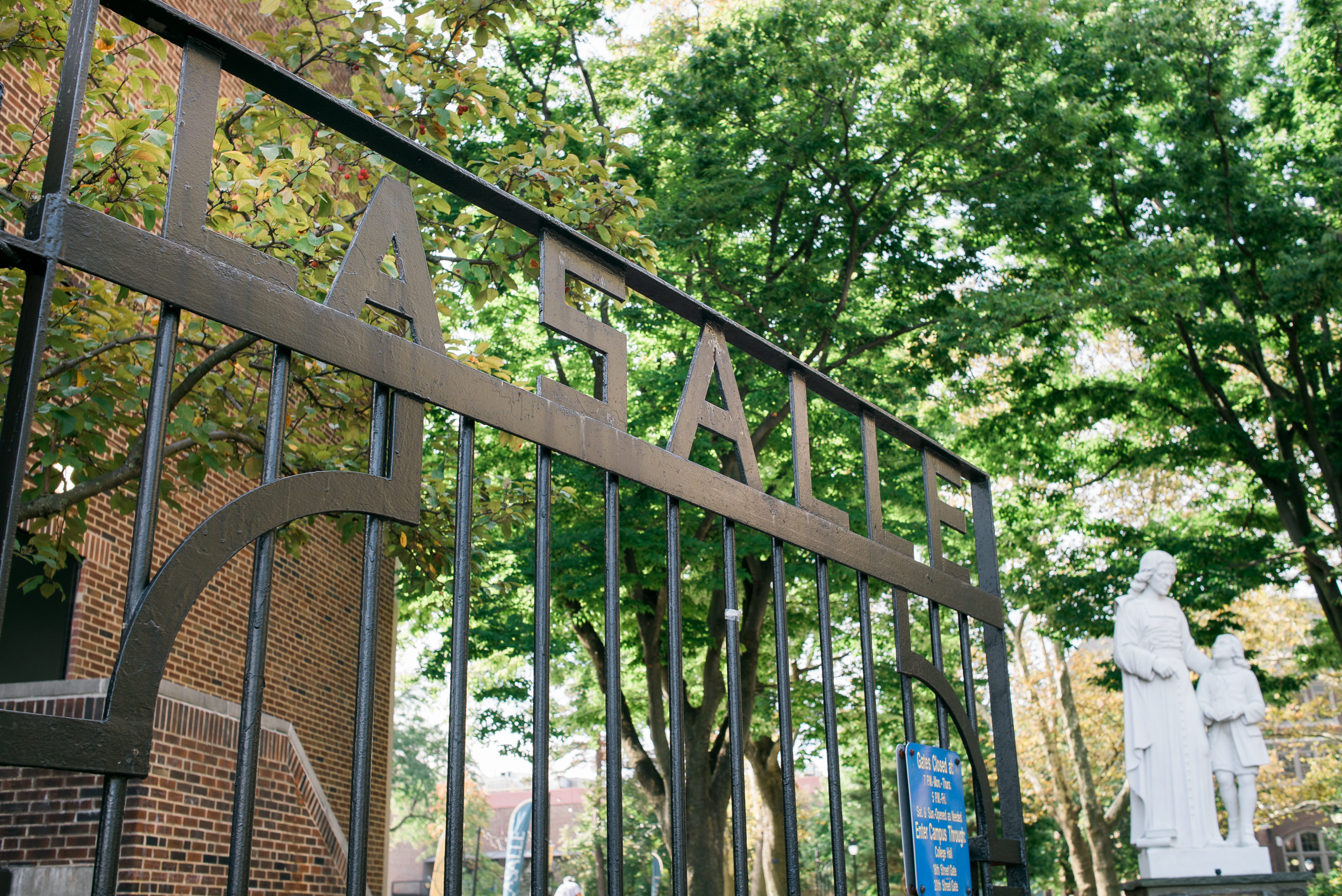
Working for a diploma — without documents
An undocumented student at La Salle shares her fight to achieve a higher education degree.
Natasha loves lifting weights. It’s her release, her destressing activity, and a reminder to herself of her own strength — a physical and mental strength that has been tested time and again by the challenges she has faced as an immigrant, without documents, while growing up in the United States.
The petite, bubbly student at the BUSCA program at La Salle University, a two-year associate degree program designed specifically for English language learners, often goes to the gym to do weight-lifting after a full day spent working with her mom in the morning for the house-cleaning business that they run, and then attending classes in the evenings at La Salle.
Natasha, whose last name has been withheld for security reasons, has fallen outside of easy categorizations and the “box” that she says people use to define those acceptable in American society, and those who are not.
Arriving in the U.S. in 2011 with her mom, Natasha was just 13 years old when she left behind her life in Brazil. Her choice: stay in the U.S. or return to Brazil alone, an implausible option since she was underage.
The first year was hard. Natasha recounts how she at first cried every day for months because of the language difference and being bullied. But by the time she reached Northeast High School in Philly, a teacher who was experienced in supporting immigrant students helped her improve her English proficiency, to the point where by her last two years she was not just taking honors classes with her American-born classmates, but scoring high grades.
“And then [began] the struggle. How am I going to get to college? Because I didn’t have my social security, I didn’t have literally anything,” says Natasha, who had arrived a year too late to be eligible for Deferred Action for Childhood Arrivals program, which had a cutoff for minors who arrived in 2010. “I thought, oh they’re not gonna accept me, I’m not even going to apply.”
But apply she did, to three area schools. Natasha was admitted to all three and chose BUSCA at La Salle after she was chosen as one of the two undocumented students in each incoming class who receive a half scholarship for tuition.
Natasha says that the challenge for her, as it is for the 5-10 percent of the college-eligible undocumented population who make it to college or higher education throughout the U.S., is finding funding for education when federal student loans and financial aid is unavailable to them.
“Because we don’t have a lot of scholarship opportunities, from government and stuff like that, it’s really hard to manage when you work a lot,” Natasha explains, adding that she generates income through she and her mother’s house cleaning business — a business for which, Natasha emphasizes, they have always paid taxes.
RELATED CONTENT
“I have hope, I’m going to really go for it even though all the doors are saying no, no, no, closing on me,” Natasha says, admitting that her positivity is her only defense against the sense of defeat she and other friends of hers who are undocumented often experience as they strive to achieve their goals.
“It’s like living a life without direction. You don’t know what is going to happen...you don’t know if you’re going to be able to achieve your dreams, your real dreams,” she says.
Though some have questioned the usefulness of a degree without the legal right to work, for Natasha, giving up her dreams of education is the same as giving in.
“Don’t tell me that just because I’m an immigrant that my only job is cleaning toilets and vacuuming houses. Because I see potential in myself,” she says.
For Natasha, the U.S. is home despite the barriers she faces. She wants to be recognized, though, for the ways in which she has and can contributed to the country she says that she has “grown to love.”
“They should look closely to people that really want to be part of the country and to make the country grow with them, help the country grow. I want to be a good citizen. So I can do everything that you’re doing to have a good economy in the country,” she affirms.











LEAVE A COMMENT:
Join the discussion! Leave a comment.